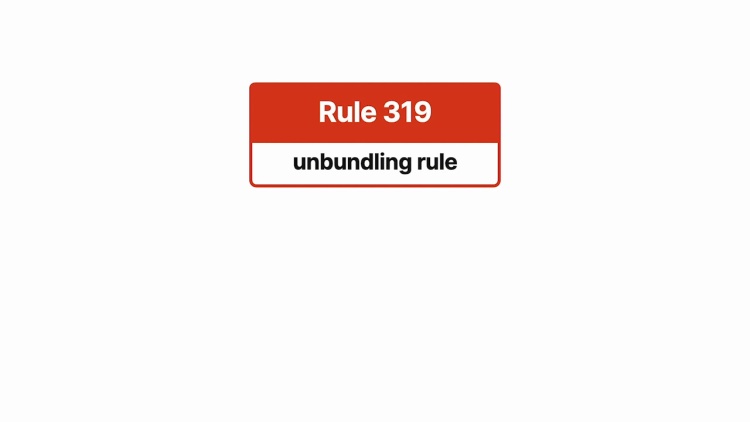AT&T Corp. v. Iowa Utilities Board
United States Supreme Court
525 U.S. 366 (1999)
- Written by Peggy Chen, JD
Facts
Until the 1990s, natural monopolies controlled local phone services due to technological limitations. States typically granted an exclusive franchise in each local service area to a local exchange carrier (LEC). The Telecommunications Act of 1996 restructured local communications by providing that the LEC must share its network with competitors, including long-distance-phone-service providers. After the passage of the act, the Federal Communications Commission (FCC) implemented the local-competition provisions. Rule 319, the primary unbundling rule, set forth the minimum number of network elements that LECs must make available to requesting providers. A group of LECs and state commissions (plaintiffs) brought suit against AT&T, other long-distance-phone-service providers, and the FCC (defendants). The LECs and state commissions argued that § 201(b) of the act, which allowed the FCC to prescribe rules and regulations that were necessary to carry out the provisions of the act, limited rulemaking authority to provisions dealing with purely interstate and foreign matters. They reasoned that the first sentence of § 201(a) stated that it was common carriers’ duty to provide communication services upon request. The United States Court of Appeals for the Eighth Circuit consolidated a number of similar challenges and ruled in favor of the LECS and state commissions. The United States Supreme Court granted certiorari.
Rule of Law
Issue
Holding and Reasoning (Scalia, J.)
Concurrence/Dissent (Breyer, J. )
Concurrence/Dissent (Thomas, J. )
Concurrence/Dissent (Souter, J.)
What to do next…
Here's why 907,000 law students have relied on our case briefs:
- Written by law professors and practitioners, not other law students. 47,100 briefs, keyed to 996 casebooks. Top-notch customer support.
- The right amount of information, includes the facts, issues, rule of law, holding and reasoning, and any concurrences and dissents.
- Access in your classes, works on your mobile and tablet. Massive library of related video lessons and high quality multiple-choice questions.
- Easy to use, uniform format for every case brief. Written in plain English, not in legalese. Our briefs summarize and simplify; they don’t just repeat the court’s language.





